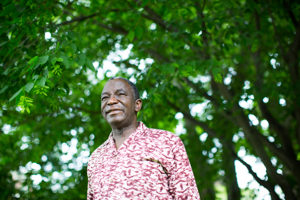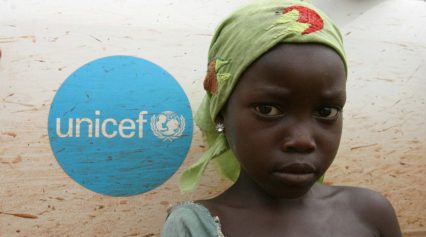
Olupona, professor of indigenous African religions at Harvard Divinity School and professor of African and African-American studies in Harvard’s Faculty of Arts and Sciences, recently sat down for an interview about his lifelong research on indigenous African religions.
Olupona earned his bachelor of arts degree in religious studies from the University of Nigeria, Nsukka, in 1975. He later earned both an M.A. (1981) and Ph.D. (1983) in the history of religions from Boston University.
Authoring or editing more than half a dozen books on religion and African culture (including the recent “African Religions: A Very Short Introduction,” Oxford University Press), Olupona has researched topics ranging from the indigenous religions of Africa to the religious practices of Africans who have settled in America. His research has helped to introduce and popularize new concepts in religious studies, such as the term “reverse missionaries,” referring to African prelates sent to Europe and the United States.
The recipient of many prestigious academic honors and research fellowships, Olupona also received the 2015–2016 Reimar Lust Award for International and Cultural Exchange, considered one of Germany’s most prestigious academic honors. The award allows Olupona a year of study and research in Germany; he is on leave this year (2015–16).
Much of Olupona’s work is an attempt to provide a fuller understanding of the complexity and richness of African indigenous thought and practice by viewing it not as a foil or as a useful comparative to better understand Western religions, but as a system of thought and belief that should be valued and understood for its own ideas and contribution to global religions.
GAZETTE: How would you define indigenous African religions?
OLUPONA: Indigenous African religions refer to the indigenous or native religious beliefs of the African people before the Christian and Islamic colonization of Africa. Indigenous African religions are by nature plural, varied, and usually informed by one’s ethnic identity, where one’s family came from in Africa. For instance, the Yoruba religion has historically been centered in southwestern Nigeria, the Zulu religion in southern Africa, and the Igbo religion in southeastern Nigeria.
For starters, the word “religion” is problematic for many Africans, because it suggests that religion is separate from the other aspects of one’s culture, society, or environment. But for many Africans, religion can never be separated from all these. It is a way of life, and it can never be separated from the public sphere. Religion informs everything in traditional African society, including political art, marriage, health, diet, dress, economics, and death.
This is not to say that indigenous African spirituality represents a form of theocracy or religious totalitarianism — not at all. African spirituality simply acknowledges that beliefs and practices touch on and inform every facet of human life, and therefore African religion cannot be separated from the everyday or mundane. African spirituality is truly holistic. For example, sickness in the indigenous African worldview is not only an imbalance of the body, but also an imbalance in one’s social life, which can be linked to a breakdown in one’s kinship and family relations or even to one’s relationship with one’s ancestors.
Read more at news.harvard.edu


